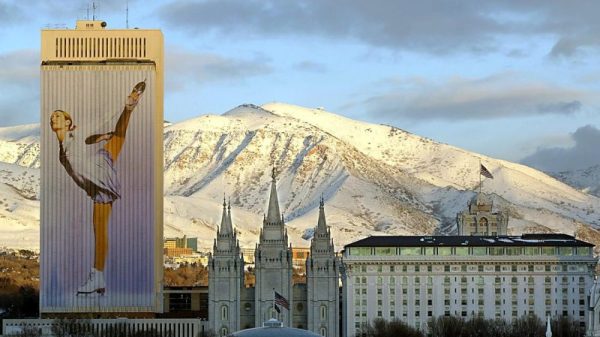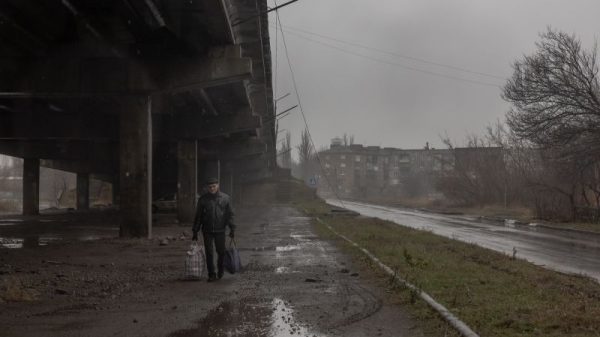Summers are getting hotter than ever, shattering all-time high temperature records, straining the energy grid and damaging critical infrastructure.
Heat waves also are coming to include another increasingly dangerous element: overnight temperatures that don’t cool down enough to offer sufficient reprieve from oppressive heat, particularly for people without access to air conditioning.
Hotter nights are a consequence of the climate crisis, scientists have warned. On average, nights are warming faster than days in most of the United States, the 2018 National Climate Assessment found.
Increasing nighttime heat is even more common in cities because of the urban heat island effect, in which metro areas are significantly hotter than their surroundings.
Places with a lot of asphalt, concrete, buildings and freeways absorb more of the sun’s heat than areas with ample parks, rivers and tree-lined streets. At night, when temperatures are supposed to cool down, the retained heat is released back into the air, said University of Washington climate and health expert Kristie Ebi.
Areas with a lot of green space – with grass and trees that reflect sunlight and create shade – are cooler on summer’s hottest days, she said.
“It’s going to take a while for trees to grow, but we need tree-planting programs focusing on places that are particularly vulnerable, making sure that city planning takes into account that we’re heading into a much warmer future.”
Nighttime should be when our bodies get a break from the heat, Patel said. But with the climate crisis, it’s becoming less likely to happen. Heat-related deaths could increase sixfold by the end of the century due to warmer nighttime temperatures, unless planet-warming pollution is significantly curbed, a 2022 study in the Lancet Planetary Health found.
The climate crisis is already affecting people’s ability to sleep, said Minor, co-author of a study that found people living in warmer climates lose more sleep for each degree of temperature increase. It was published in May in the journal One Earth.
“We all know what it’s like to try to fall asleep on a hot night – it’s uncomfortable,” Patel said. “We often lose sleep. It is estimated that by the end of the century, we could lose about two days of sleep per year, and it will be worse for people without access to air conditioning.”
At its most extreme, when a human body does not get the chance to recover – typically at night – heat stress can progress to heat stroke, which is associated with confusion, dizziness and passing out, Patel explained.
People around the world are already losing roughly 44 hours of sleep every year on average due to warm nighttime temperatures during just the first part of the 21st century, Minor’s study estimated. He calls this “sleep erosion,” noting each person may lose up to 58 hours of sleep by the end of the century.
“People in our study did not appear to make up for lost sleep on hotter nights by napping during the day or by sleeping more during the days or weeks after,” Minor said. “In fact, they lost additional sleep over these periods due to a delayed temperature effect, possibly due to ambient heat being trapped indoors.”
And much like other social issues, the impacts don’t fall equally across communities, he said.
“For every degree of nighttime temperature rise, we found that the elderly lost over twice as much sleep as middle-aged adults, females lost slightly more sleep than males, and critically, residents of lower-middle-income countries lost three times as much sleep compared to people living in higher income countries,” Minor said.
Heat waves that go on for several days tend to be associated with more deaths as the body can no longer keep itself cool, Patel said.
And unless planet-warming pollution is curbed, the climate crisis is set to increase exposure to dangerous heat index levels by 50% to 100% in much of the tropics and by up to 10 times across much of the globe, according to a 2022 study published in Communications Earth & Environment.
“Living through a heat wave during the day can be like running a race,” Patel said. “We need a cool break to recover and recuperate, and when nighttime temperatures don’t drop, we don’t get that critical time we need to relieve the stress on our bodies from being overheated during the day.”







































